St Petersburg metro explosion kills 11 in Russia
- Published
Footage shows passengers leaping from the wreckage in the minutes after the blast
Eleven people have been killed and 45 injured in an explosion between two underground stations in St Petersburg.
The head of Russia's National Anti-Terrorist Committee said the blast hit a train between Sennaya Ploshchad and Tekhnologichesky Institut stations.
The committee said an explosive device was later found and made safe at another station nearby.
Prime Minister Dmitry Medvedev said in a Facebook post that the explosion was a "terrorist attack".
An anti-terror investigation has been opened, but other possible causes are being investigated.
What happened?
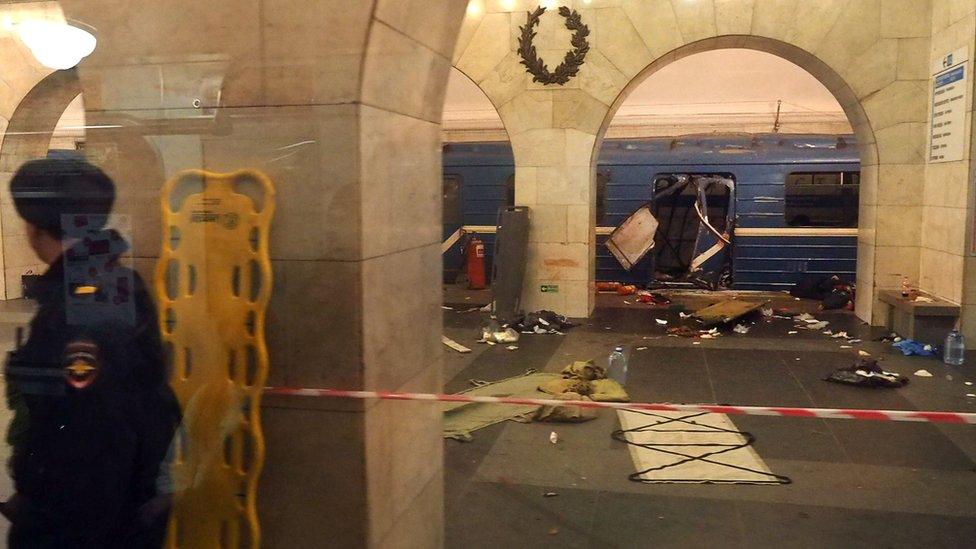
The badly-damaged train came to a stop at the Tekhnologichesky Institut station
The first images posted on social media showed a train at a platform in Tekhnologichesky Institut station with a hole blown in its side, along with a number of casualties.
Initial reports suggested there had been two explosions, one each at Sennaya Ploshchad and Tekhnologichesky Institut stations.
But the Russian National Anti-Terrorist Committee later confirmed there had been only one explosion, between the two stations, at about 14:30 local time (11:30 GMT).
Emergency services tend to the wounded outside a St Petersburg metro station
Senior investigator Svetlana Petrenko told Russian media the train driver's decision to continue to the next station almost certainly helped save lives, as it allowed people to be rescued quickly.
Health Minister Veronika Skvortsova said 10 people had died - seven at the scene, one in an ambulance and two in hospital. The death toll was later raised to 11.
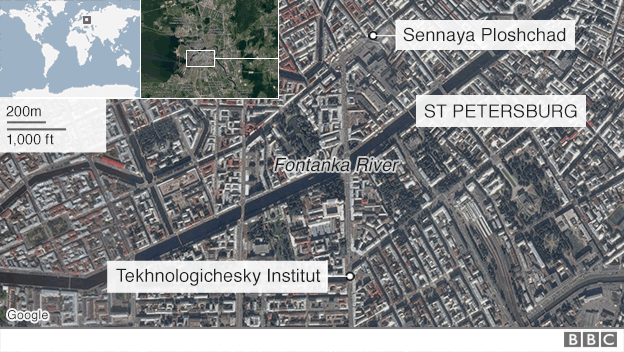
What was the cause?
Andrei Przhezdomsky, the head of the National Anti-Terrorist Committee, said the explosion was caused by "an unidentified explosive device" but that the exact cause had yet to be determined.
President Vladimir Putin said all causes, especially terrorism, were being investigated. He was in St Petersburg at the time of the blast, his spokesman Dmitry Peskov said.
The discovery of an explosive device at another station, Ploshchad Vosstaniya, indicates the attack was deliberate, and reports in Russia say the explosion came from a briefcase left on the train.
Who might be behind the blast? Analysis by Frank Gardner, BBC Security Correspondent
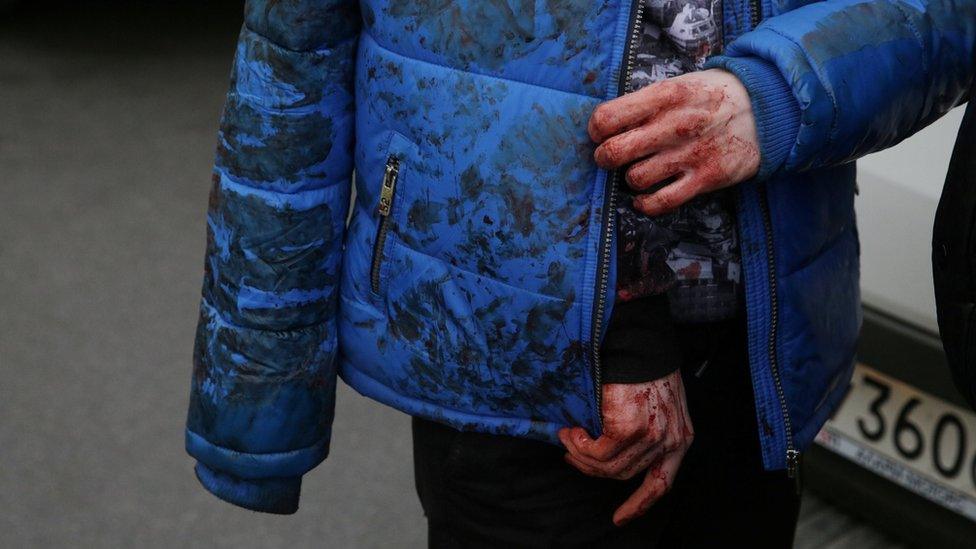
The entire metro network was shut down
The Russian authorities are sensibly being cautious before apportioning blame for Monday's metro blast. An earlier quote by the prosecutor-general that it was an act of terrorism was quickly retracted.
The FSB security service, the successors to the Soviet-era KGB, have skilled investigators, including forensic explosive experts. They will have been examining security camera footage and the explosive residue for clues, as well as the second device that was found intact and defused.
Their suspicions are likely to focus on two possible suspects, neither yet confirmed. First, an IS-inspired group enraged by recent Russian airstrikes in Syria. And second, Chechen nationalists (or even a combination of both).
Chechen militants and international jihadists do have a track record of plotting to attack Russia's transport hubs, notably in Moscow. An estimated 7,000 Russians have travelled to Syria to join extremist groups - and some have returned.
Is this unprecedented?
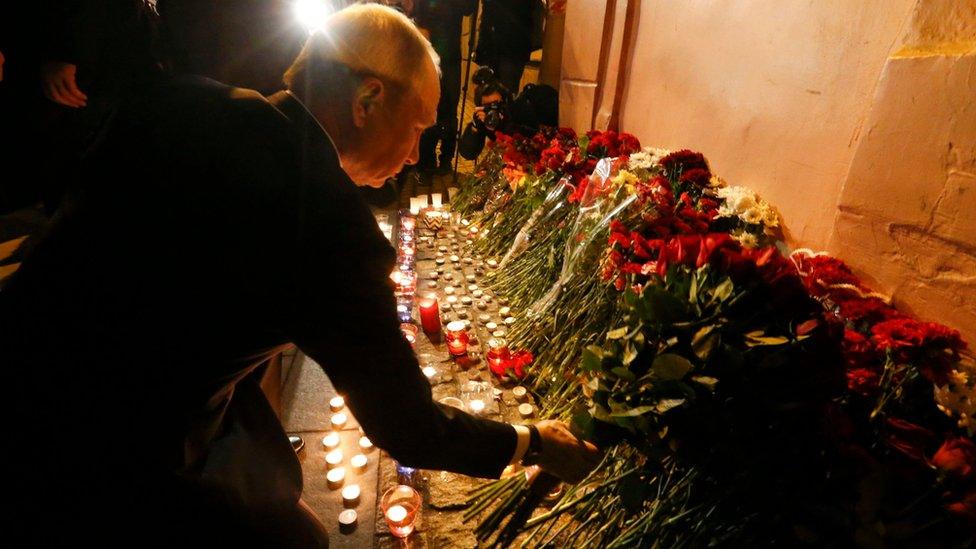
President Putin visited the scene of the blast to lay flowers late on Monday
St Petersburg's metro system is the 19th busiest in the world, with more than two million passengers every day, but it has not suffered attacks before.
Several transport hubs in Russia have, however, been attacked. In 2010, 38 people died in a double suicide bombing on the Moscow metro.
And a year later, a bomb exploded on a high-speed train travelling between Moscow and St Petersburg, killing 27 and injuring another 130.
Both attacks were claimed by Islamist groups.

Are you in the area? If it is safe to do so, please get in touch with us. Email us at haveyoursay@bbc.co.uk, external
You can send your pictures and video to yourpics@bbc.co.uk, external
You can also contact us in the following ways:
Tweet: @BBC_HaveYourSay, external
WhatsApp: +447555 173285
Text an SMS or MMS to 61124 (UK) or +44 7624 800 100 (international)
- Published3 April 2017
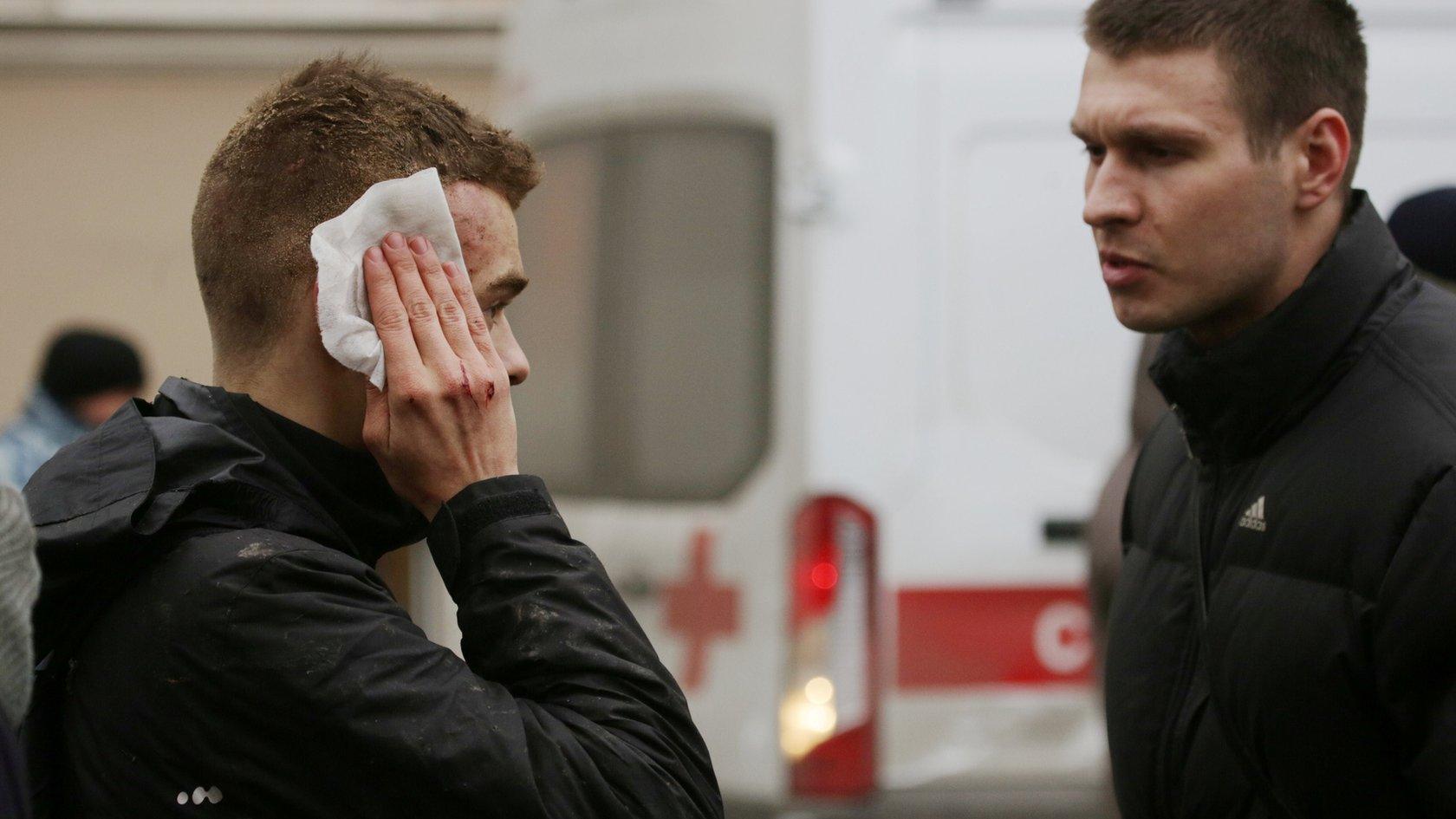
- Published4 April 2017